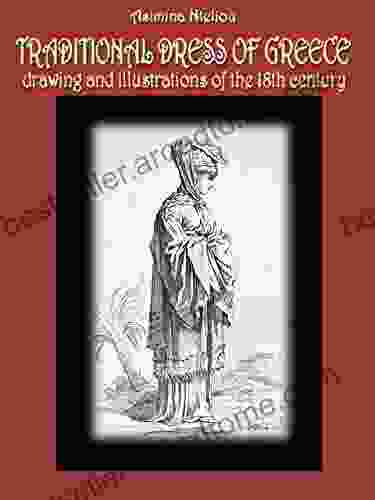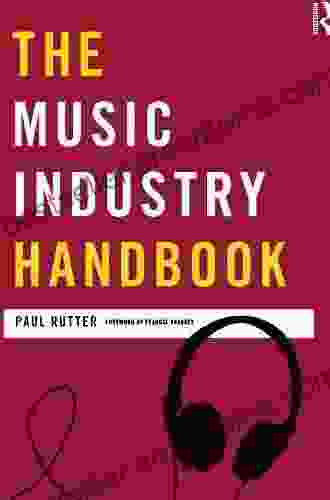The Music Industry Handbook: An Essential Guide to the Media Practice

The music industry is a complex and ever-changing landscape. The Music Industry Handbook provides an essential guide to the media practice, offering a comprehensive overview of the industry, its key players, and the legal and financial aspects of the business.
The music industry is a global business, with billions of dollars in revenue generated each year. The industry is made up of a diverse range of businesses, including record labels, music publishers, recording studios, and live music venues.
The music industry is constantly evolving, with new technologies and business models emerging all the time. In recent years, the internet has had a major impact on the industry, making it easier for artists to reach fans and for fans to discover new music.
4.2 out of 5
| Language | : | English |
| File size | : | 1954 KB |
| Text-to-Speech | : | Enabled |
| Screen Reader | : | Supported |
| Enhanced typesetting | : | Enabled |
| Word Wise | : | Enabled |
| Print length | : | 346 pages |
The music industry is made up of a wide range of businesses and individuals, each with their own unique role to play. Some of the key players in the industry include:
- Record labels: Record labels are companies that sign artists and produce and distribute their music. Record labels typically provide artists with a range of services, including marketing, promotion, and distribution.
- Music publishers: Music publishers are companies that own the copyrights to musical compositions. Music publishers typically collect royalties from artists who perform or record their songs.
- Recording studios: Recording studios are facilities where artists record their music. Recording studios typically provide a range of services, including recording, mixing, and mastering.
- Live music venues: Live music venues are businesses that host live music performances. Live music venues typically provide a range of services, including booking artists, selling tickets, and providing food and beverages.
The music business is a complex and regulated industry. There are a number of laws and regulations that govern the production, distribution, and sale of music.
Some of the key legal issues in the music business include:
- Copyright law: Copyright law protects the original works of authors, including musical compositions. Copyright law gives authors the exclusive right to reproduce, distribute, and sell their works.
- Trademark law: Trademark law protects the distinctive marks, symbols, and names that are used to identify goods and services. Trademark law gives businesses the exclusive right to use their trademarks to identify their goods and services.
- Contract law: Contract law governs the agreements between artists, record labels, music publishers, and other businesses in the music industry. Contract law ensures that all parties to an agreement know their rights and obligations.
The music business is also a complex financial industry. There are a number of financial considerations that artists and businesses need to be aware of, including:
- Artist royalties: Artists typically receive royalties from the sale of their music. Royalties are typically paid based on the number of copies of an album that are sold, or the number of times a song is played on the radio or streamed online.
- Record label advances: Record labels often provide artists with advances to help them cover the costs of recording and promoting their music. Advance payments are typically recoupable, meaning that the artist must pay back the advance from the proceeds of their music sales.
- Music publishing royalties: Music publishers typically collect royalties from artists who perform or record their songs. Royalties are typically paid based on the number of times a song is performed live or broadcast on the radio or television.
The Music Industry Handbook is an essential guide to the media practice, providing an overview of the industry, its key players, and the legal and financial aspects of the business. The Handbook is a valuable resource for artists, musicians, and anyone else who wants to learn more about the music industry.
4.2 out of 5
| Language | : | English |
| File size | : | 1954 KB |
| Text-to-Speech | : | Enabled |
| Screen Reader | : | Supported |
| Enhanced typesetting | : | Enabled |
| Word Wise | : | Enabled |
| Print length | : | 346 pages |
Do you want to contribute by writing guest posts on this blog?
Please contact us and send us a resume of previous articles that you have written.
 Book
Book Novel
Novel Page
Page Chapter
Chapter Text
Text Story
Story Genre
Genre Reader
Reader Library
Library Paperback
Paperback E-book
E-book Magazine
Magazine Newspaper
Newspaper Paragraph
Paragraph Sentence
Sentence Bookmark
Bookmark Shelf
Shelf Glossary
Glossary Bibliography
Bibliography Foreword
Foreword Preface
Preface Synopsis
Synopsis Annotation
Annotation Footnote
Footnote Manuscript
Manuscript Scroll
Scroll Codex
Codex Tome
Tome Bestseller
Bestseller Classics
Classics Library card
Library card Narrative
Narrative Biography
Biography Autobiography
Autobiography Memoir
Memoir Reference
Reference Encyclopedia
Encyclopedia Emma Blanchard
Emma Blanchard Annie Zaleski
Annie Zaleski Anne Catherine Fallen
Anne Catherine Fallen Anne Edwards
Anne Edwards James H Willbanks
James H Willbanks Sean Fane
Sean Fane Dan Blank
Dan Blank Wayne Currie
Wayne Currie Ann Shen
Ann Shen Stephen E Flowers
Stephen E Flowers Anthea Peries
Anthea Peries Anusuya Chinsamy Turan
Anusuya Chinsamy Turan Asamod Ka
Asamod Ka Rob Simone
Rob Simone Asia Suler
Asia Suler Ann Russell
Ann Russell Manik Joshi
Manik Joshi Richard Schulze
Richard Schulze Antony Dapiran
Antony Dapiran Narayanan Ganesan
Narayanan Ganesan
Light bulbAdvertise smarter! Our strategic ad space ensures maximum exposure. Reserve your spot today!

 Pablo NerudaDiscover "Mind of Her Own": The Captivating Novel That Unlocks the Secrets of...
Pablo NerudaDiscover "Mind of Her Own": The Captivating Novel That Unlocks the Secrets of... Angelo WardFollow ·11.8k
Angelo WardFollow ·11.8k Corey HayesFollow ·14.6k
Corey HayesFollow ·14.6k Sam CarterFollow ·7.7k
Sam CarterFollow ·7.7k Shawn ReedFollow ·14.6k
Shawn ReedFollow ·14.6k Craig BlairFollow ·13k
Craig BlairFollow ·13k Dan HendersonFollow ·19.7k
Dan HendersonFollow ·19.7k Leo MitchellFollow ·2.9k
Leo MitchellFollow ·2.9k Vernon BlairFollow ·9.5k
Vernon BlairFollow ·9.5k

 Jeremy Cook
Jeremy CookDrawing and Illustrations of the 18th Century: A Journey...
Step into the...

 Easton Powell
Easton PowellPhysician Experience With Obstructive Sleep Apnea: The...
Obstructive sleep apnea (OSA) is a common...

 Cruz Simmons
Cruz SimmonsUnlock Your Inner Healer: The Transformative Power of...
Are you ready to embark on a profound healing...

 Paulo Coelho
Paulo CoelhoTransmission Awakening In Time Of Transition Vol. 1: A...
Transmission Awakening...
4.2 out of 5
| Language | : | English |
| File size | : | 1954 KB |
| Text-to-Speech | : | Enabled |
| Screen Reader | : | Supported |
| Enhanced typesetting | : | Enabled |
| Word Wise | : | Enabled |
| Print length | : | 346 pages |














